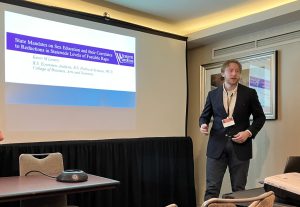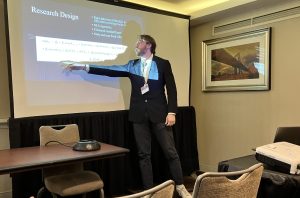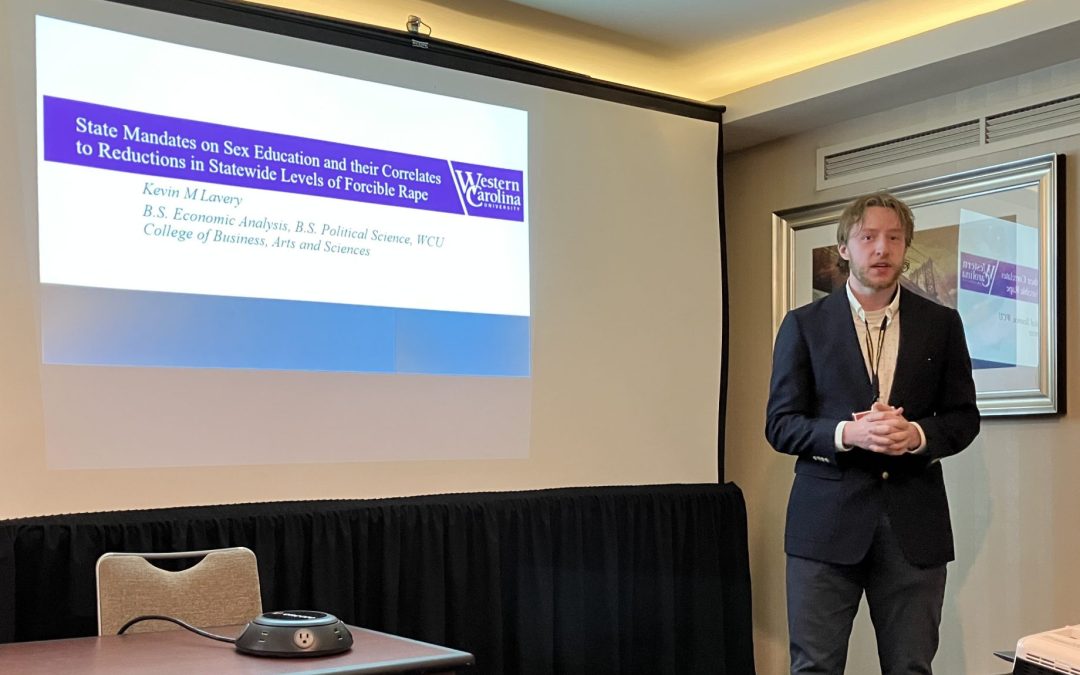On Saturday, February 22, 2025, Kevin Lavery presented his paper, “State Mandates on Sex Education and their Correlates to a Reduction in the Rate of Forcible Rape” in a faculty session at the Eastern Economic Association Meetings in New York City. Kevin’s paper analyzes the effect of state mandated sex education on the prevalence of forcible rape within states.
Using a traditional two-way fixed effects regression, Kevin finds that state mandates on sex education have a negative relationship to the rate of forcible rape. Holding all other variables constant, states with sex education mandates have 2.60 fewer reports of forcible rape per 100,000 citizens on average or roughly a 7% decline at the mean relative to states that do not have mandates on sex education.
Kevin then analyzes the timing of the effects to see how quickly these sex education mandates are associated with declines in forcible rape. He finds that these declines do not take place until eight or nine years after the sex education mandates are instituted.
Because the timing of sexual education mandates differs across states, two-way fixed effects regressions may result in bias estimates. To address this, Kevin uses the Callaway Sant’Anna (2020) and the Goodman-Bacon (2019) difference-in-differences estimation specifications to adjust for problems caused by differential treatment timing. In four of the five specifications using these estimation techniques, Kevin continues to find statistically significant declines in forcible rape following sexual education mandates.
Kevin did an outstanding job presenting his findings in a clear and concise manner. Many of those in the session commended Kevin on his approach and methodology. I am excited to support and follow Kevin as he continues to conduct research as an economics graduate student in the fall of 2025.

